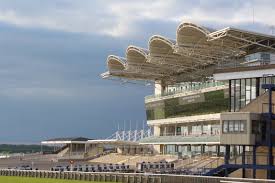
Introduction
Newmarket Races, located in Suffolk, is renowned as the birthplace of British horse racing, holding a pivotal place in the national sporting calendar. Established in the early 17th century, the racecourse is home to prestigious events that attract visitors from all over the world. The significance of Newmarket Races extends beyond just entertainment; it plays a critical role in the breeding and training of thoroughbred racehorses, making it a cornerstone of the equine industry in the UK.
Upcoming Events and Highlights
The Newmarket racing season is jam-packed with exciting events, including the Guineas Festival in May, which showcases two of the most prestigious flat races in the world – the 2000 Guineas and 1000 Guineas. These races not only highlight the best of British horse racing but also attract international contenders keen to compete at an iconic venue. This year, the festival is expected to draw an even larger crowd following the easing of pandemic restrictions, with attendance projected to rise by 20% compared to previous years.
The Importance of Newmarket in Horse Racing
Newmarket is often referred to as the ‘home of racing’ due to its rich history and numerous training facilities. The town boasts over 40 training yards, with some of the most successful trainers in the country operating there. This unique concentration of talent has led to Newmarket being the preparatory ground for many legendary horses and jockeys, further solidifying its status in the sport. The National Stud, located within the vicinity, is also a vital aspect, contributing to the breeding sector and nurturing future racing champions.
Impact on Local Economy
The economic significance of Newmarket Races cannot be understated. Events held throughout the year generate millions for the local economy, benefitting businesses in hospitality, retail, and tourism. With seasonal events such as the July Festival and Future Champions Festival, the influx of visitors significantly boosts trade and creates seasonal job opportunities in the area. Recent reports have highlighted that race days can lead to a 50% increase in local business revenue compared to non-racing days.
Conclusion
Newmarket Races remains integral not only as a key sporting event but also as a significant contributor to the economy and culture of British horse racing. As the racing calendar continues to evolve, with new initiatives and events on the horizon, the future of Newmarket looks promising. For both seasoned enthusiasts and newcomers, Newmarket Races offers a rich experience, blending tradition with modernity in the heart of the UK’s equestrian landscape.
You may also like

The Exciting Location of Super Bowl 2024: What to Expect

Understanding the FA Cup Third Round Draw 2023

The Importance of Sporting Events in 2023
SEARCH
LAST NEWS
- Remembering Wendy Richard: The Promise to Co-Star Natalie Cassidy
- How Did Anglian Water Achieve an ‘Essentials’ Rating for Mental Health Accessibility?
- Shai Hope Leads West Indies in T20 World Cup Clash Against South Africa
- What We Know About Weston McKennie: Future at Juventus and Past at Leeds
- What We Know About the Upcoming Live Nation Antitrust Trial